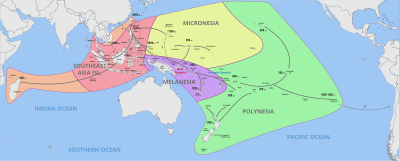History of the Comoros
[citation needed] Over the centuries, the Comoros have been settled by a succession of diverse groups from the coast of Africa, the Persian Gulf, Southeast Asia and Madagascar.British and Dutch ships began arriving around the start of the 17th century and the island of Ndzwani soon became a major supply point on the route to the East Indies.Ndzwani was generally ruled by a single sultan, who occasionally attempted to extend his authority to Mayotte and Mwali; Ngazidja was more fragmented, on occasion being divided into as many as 12 small kingdoms.Sir James Lancaster's voyage to the Indian Ocean in 1591 was the first attempt by the English to break into the spice trade, which was dominated by the Portuguese.[7] When France ceded Mauritius, Rodrigues, and Seychelles to Britain in 1814, it lost its Indian Ocean ports; Reunion, which remained French, did not offer a suitable natural harbor.[8] Mahore offered a suitable site for port facilities, and its acquisition was justified by de Hell on the grounds that if France did not act, Britain would occupy the island.[9] Colonial rule brought an end to the institution of Slavery in the Comoros, but economic and social differences between former slaves and free persons and their descendants persisted.[9] One consequence of this policy was the migration of large numbers of Comorans to Madagascar, where their presence would be a long-term source of tension between Comoros and its giant island neighbor.[9] Isolated from important trade routes by the opening of the Suez Canal in 1869, having few natural resources, and largely neglected by France, the islands were poorly equipped for independence.The first president of the Comoros, Ahmed Abdallah Abderemane, did not last long before being ousted in a coup d'état by Ali Soilih, an atheist with an Islamic background.He was trained, supported and funded by the white regimes in South Africa (SA) and Rhodesia (now Zimbabwe) in return for permission to set up a secret listening post on the islands.South-African agents kept an ear on the important ANC bases in Lusaka and Dar es Salaam and watched the war in Mozambique, in which SA played an active role.When in 1981 François Mitterrand was elected president Denard lost the support of the French intelligence service, but he managed to strengthen the link between SA and the Comoros.France immediately and severely denounced the coup, and backed by the 1978 defense agreement with the Comoros, President Jacques Chirac ordered his special forces to retake the island.In March 1996, following presidential elections, Mohamed Taki Abdoulkarim, a member of the civilian government that Denard had tried to set up in October 1995, became president.On 23 November 1996, Ethiopian Airlines Flight 961 crashed near a beach on the island after it was hijacked and ran out of fuel killing 125 people and leaving 50 survivors.A subsequent attempt by the government to re-establish control over the rebellious islands by force failed, and presently the African Union is brokering negotiations to effect a reconciliation.In 1999, Anjouan had internal conflicts and on August 1 of that year, the 80-year-old first president Foundi Abdallah Ibrahim resigned, transferring power to a national coordinator, Said Abeid.

Sultans on the ComorosColonial governors of the ComorosTerritory of the ComorosAbdallah regimeOperation Azalee2008 invasion of AnjouanComorossultanatesSouth East Asian sailorsMadagascarAustronesian peoplesIndo-PacificAustronesianmung beancottonfinger milletsorghumcowpeaShiraziHadramiPersian GulfSoutheast AsiaJacques Nicolas BellinParmentierNdzwaniMayotteNgazidjaJames Lancasterchequebook politicsserendipitousAnjouanList of sultans on the ComorosRéunionRodriguesMauritiusSeychellesNosy-BeAdmiral de HellGermany's growing influencecolony of MadagascarSlavery in the Comorosvanillaylang-ylangcloves1958 referendumAhmed Abdallah Abderemanecoup d'étatAli SoilihatheistsocialistBob DenardDecember 1974February 1976Federal Islamic Republic of the ComorosAhmed AbdallahRhodesiaLusakaDar es SalaamMozambiqueFrançois MitterrandSaid Mohamed DjoharJacques ChiracThis (response) operation, codenamed AzaléeCaambi El-YachourtuMohamed Taki AbdoulkarimEthiopian Airlines Flight 961MohéliAfrican UnionSaid AbeidMohamed BacarAzali Assoumanimilitary coupAhmed Abdallah SambiUnion of the ComorosSaudi ArabiaAyatollah2002 election2016 election.electionsreferendumThe Convention for the Renewal of the Comorosparliamentary electionelectionList of heads of state of the ComorosList of heads of government of the ComorosHistory of AfricaHistory of Southern AfricaPolitics of the ComorosBibcodepublic domainMetz, Helen ChapinarticlesSultansColonial governors1979–1989GeographyCitiesVolcanoesWildlifePoliticsConstitutionForeign relationsHuman rightsMilitaryPolitical partiesPresidentVice-PresidentPrime MinisterEconomyAgricultureFranc (currency)MiningTelecommunicationsTourismTrade unionsTransportAbortionCorruptionCultureDemographicsEducationHealthHolidaysLanguagesOlympicsReligion